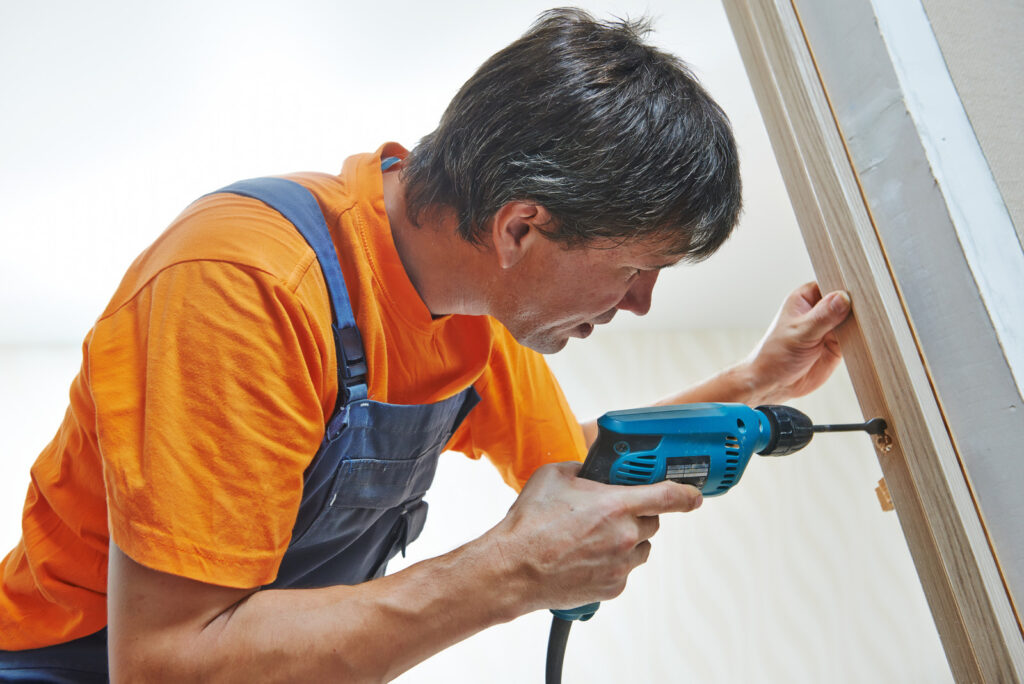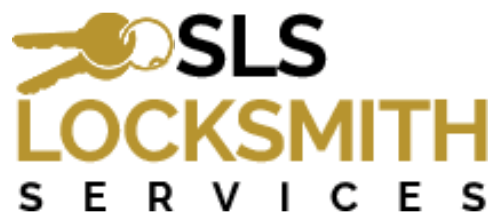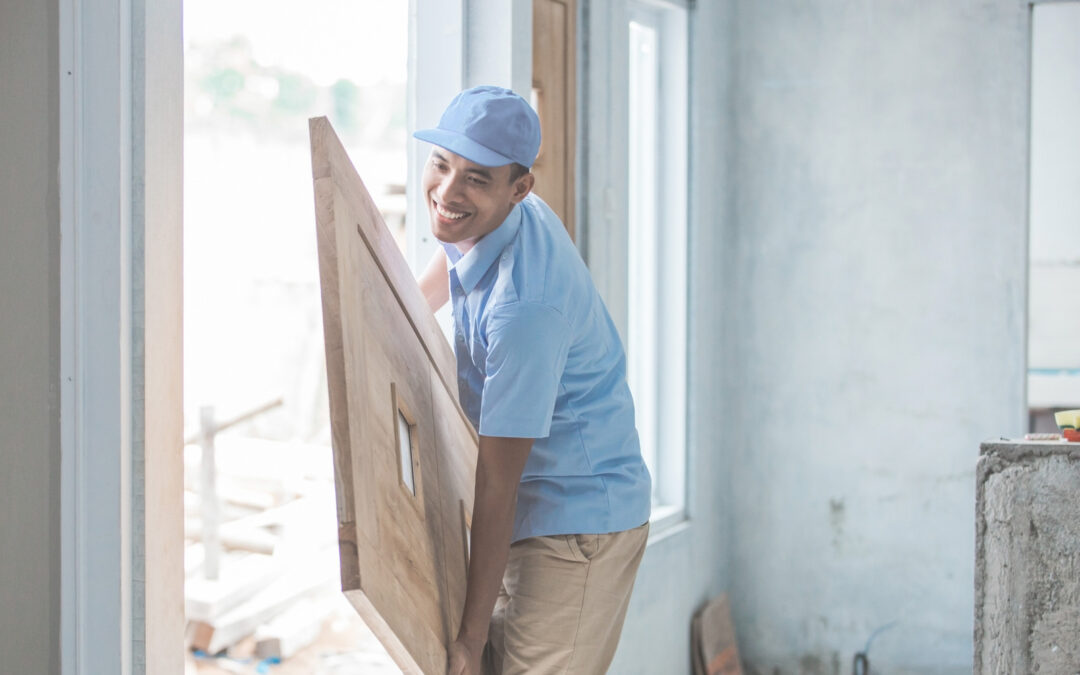Doors are often overlooked when it comes to maintenance, yet they play a crucial role in ensuring any building or property’s safety, security, and efficiency. Whether in residential homes, commercial establishments, or industrial facilities, doors serve as gateways that regulate access, provide protection, and contribute to the overall functionality of the space. Neglecting regular maintenance can lead to issues ranging from safety hazards to operational inefficiencies, ultimately impacting occupants and property owners.
This blog will explore the importance of regular door maintenance for safety and efficiency. It will cover avoiding costly repairs, complying with regulations and how prioritizing door maintenance contributes to a safer environment.Let’s unlock the door to better safety and efficiency through proper maintenance practices.
Safety First: Preventing Accidents and Hazards
Ensuring the safety of occupants and visitors is paramount in any environment, and properly maintained doors play a critical role in accident prevention and hazard mitigation. Here’s why prioritizing door maintenance is essential for safeguarding against potential risks:
Functionality Checks: Regular inspections of doors allow for the early detection of any mechanical issues or malfunctions that could pose safety hazards.
Preventing Entrapment: Doors with faulty mechanisms, such as automatic sliding doors or elevator doors, pose a risk of entrapment if not properly maintained.
Fire Safety Compliance: In the event of a fire, properly functioning doors act as barriers that help contain the spread of smoke and flames, allowing occupants to evacuate safely.
Accessibility and Egress: Maintaining clear pathways and ensuring the accessibility of doors is crucial, especially in public buildings and spaces.
Investing in the upkeep of doors protects lives and property and promotes peace of mind for everyone who enters and exits the premises.
Efficiency Matters: Optimizing Operations with Well-Maintained Doors
Efficiency is crucial in any setting, whether a residential building, a commercial establishment, or an industrial facility. Well-maintained doors play a significant role in streamlining operations and maximizing efficiency. Here’s why prioritizing door maintenance is essential for optimizing operations:
Smooth Functionality: Regular maintenance, including lubrication of hinges, adjustment of closers, and replacement of worn-out components, ensures that doors operate efficiently, reducing bottlenecks and minimizing disruptions to daily operations.
Energy Efficiency: Properly maintained doors help conserve energy by preventing air leakage and maintaining optimal temperature control. By addressing wear and tear on these components through maintenance, property owners can enhance the energy efficiency of their building envelope, resulting in lower utility costs and reduced environmental impact.
Security Enhancements: Proactively addressing vulnerabilities and weaknesses, property owners can bolster security measures and safeguard against potential threats or breaches.
Reduced Downtime: By investing in regular maintenance, businesses can minimize the risk of unexpected door-related downtime and keep operations running smoothly.
Enhanced User Experience: The user experience is directly impacted by the condition of doors and how efficiently they operate. An efficient and smooth entry and exit process can contribute to overall customer satisfaction and loyalty.
Investing in the upkeep of doors improves functionality and security and enhances the overall experience for occupants and visitors alike.

Cost Savings: Avoiding Expensive Repairs and Replacements
Proactive door maintenance isn’t just about ensuring smooth operations and enhancing safety—it’s also a savvy financial investment. Here’s how proper door maintenance translates into tangible cost savings:
Preventative Maintenance: Regular inspections and maintenance can help prevent minor issues from escalating into major problems that require expensive repairs. By identifying and resolving issues early on, property owners can nip potential problems in the bud, saving time and money.
Extended Lifespan: Well-maintained doors have a longer lifespan compared to neglected ones. Regular lubrication of hinges, cleaning of tracks, and replacement of worn-out components help prolong the life of doors and their associated hardware.
Reduced Emergency Repairs: Emergency repairs often come with premium costs, especially if they occur outside regular business hours or require immediate attention to restore functionality.
Energy Savings: Properly maintained doors improve energy efficiency by preventing air leakage and heat loss. Sealing gaps around doors, replacing worn weather-stripping, and ensuring proper insulation all help reduce heating and cooling costs.
Preservation of Property Value: Investing in regular door maintenance helps preserve the curb appeal and structural integrity of buildings, ensuring that they maintain their value over time. Whether it’s a residential home, commercial building, or industrial facility, maintaining doors in good condition is essential to property upkeep and asset management.
Compliance Costs: Failure to maintain doors by relevant safety and accessibility regulations can result in costly fines and penalties. By staying proactive with maintenance and ensuring compliance with applicable codes and standards, property owners can avoid the financial repercussions of non-compliance.
Maintaining efficient and functional doors contributes to long-term savings by reducing energy consumption, preserving property value, and enhancing overall operational efficiency.
Prolonging Lifespan: Extending the Durability of Your Doors
Doors are not just functional elements of a building but also investments that contribute to its overall value and aesthetics. By implementing proper maintenance practices, property owners can significantly extend the lifespan of their doors, ensuring that they remain durable, reliable, and visually appealing for years to come. Here’s how proactive maintenance can help prolong the lifespan of your doors:
- Conducting routine inspections is the first step in identifying potential issues that could compromise the integrity of your doors.
- Exposure to the elements can take a toll on the durability of doors, particularly exterior ones. Weatherproofing measures, such as applying sealants, weather-stripping, or protective coatings, help prevent moisture intrusion, UV damage, and temperature fluctuations that can cause deterioration.
- Components such as hinges, handles, locks, and seals may wear out over time and must be repaired or replaced.
- Educating occupants about doors’ proper use and care can also contribute to their longevity. Avoid slamming doors, hanging heavy objects on them, or using excessive force when opening or closing.
- Exterior doors should be periodically repainted or refinished to protect them from moisture, UV rays, and other environmental factors.
- For optimal performance and longevity of doors, professional technicians conduct thorough inspections, diagnose issues, and make any necessary repairs or adjustments.
A proactive approach to door maintenance saves you money in the long run by reducing the need for premature replacements. It enhances the safety, security, and aesthetic appeal of your property.
Conclusion:
In conclusion, the significance of regular door maintenance for safety and efficiency cannot be overstated. Doors are essential to any building or property, providing access, security, and protection for occupants and assets.
From preventing accidents and hazards to optimizing operations and avoiding costly repairs, maintaining doors in good condition extends across various aspects of property management. Regular inspections, lubrication, weatherproofing, and prompt repair of issues are all essential elements of an effective maintenance regimen.
Take action today to prioritize the maintenance of your doors. Schedule regular inspections, address any issues promptly, and enlist the help of professional technicians when needed.

